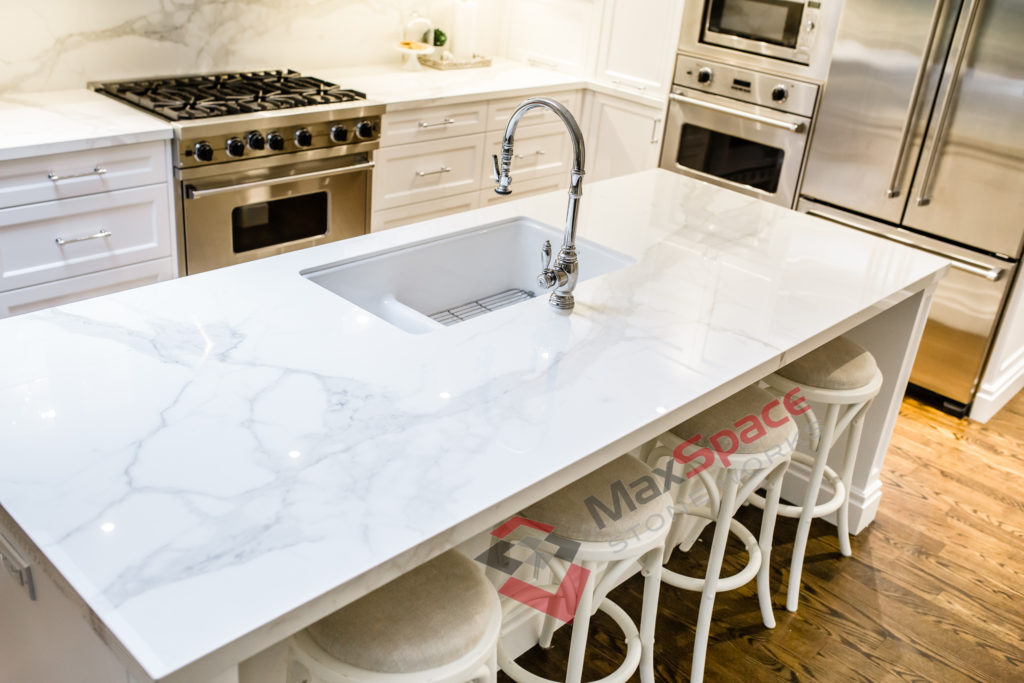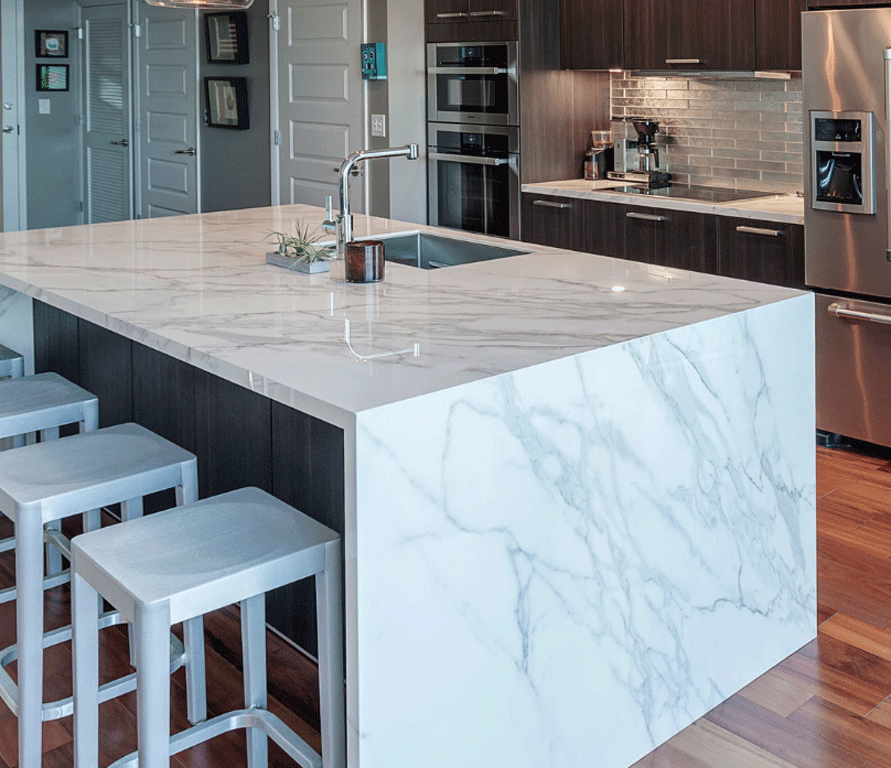
Porcelain countertops are a popular choice for many homeowners looking to upgrade their kitchen. Not only are porcelain countertops beautiful, but they are also durable and long-lasting. Porcelain countertops come in a variety of colors and styles and can be customized to fit any home. However, there are some pros and cons to consider before making a decision.
Pros of Porcelain Countertops
Durability: Porcelain is a very hard material, making it highly resistant to scratches and chips. This makes it an ideal choice for busy households with children and pets.
Low Maintenance: Porcelain countertops are easy to clean and maintain. Unlike other materials, they do not require special cleaners or polishes. A simple wipe down with a damp cloth is usually enough to keep them looking new.
Variety: Porcelain countertops are available in a wide variety of colors, textures, and styles. This makes it easy to find a look that perfectly fits the style of your home.
Heat Resistance: Porcelain countertops are highly heat resistant, making them great for homes with a lot of cooking. They won't be damaged by hot pots and pans like other materials can.
Affordable: Porcelain countertops are often more affordable than other materials, making them a great choice for those on a budget.
Cons of Porcelain Countertops
Fragility: Porcelain is a hard material, but it is still relatively fragile and can be cracked or chipped if not handled properly.
Installation: Porcelain countertops are relatively heavy and can require special installation. This can add to the cost of the project.
Staining: Porcelain can be stained if not sealed properly. It is important to seal your countertops regularly to prevent staining.
Chips: Porcelain is highly resistant to chips and scratches, but they can still occur if the countertop is not handled properly.
Tips for Installing Porcelain Countertops
Hire a Professional: Porcelain countertops are relatively heavy and can require special installation. It is best to hire a professional to ensure that your countertop is installed correctly.
Seal Regularly: Porcelain countertops should be sealed regularly to prevent staining and water damage. This will help keep your countertops looking their best for years to come.
Careful Handling: Porcelain countertops should be handled with care to prevent chips and cracks. Always use a cutting board and avoid placing hot pots and pans directly on the countertop.
Choose the Right Color: Porcelain countertops come in a wide variety of colors and styles. Choose a color that complements the rest of your kitchen and will not show dirt or stains easily.
Porcelain Countertop Maintenance Tips
Clean Regularly: Porcelain countertops should be cleaned regularly to prevent staining. Use a mild soap and warm water and wipe down the countertop after each use.
Avoid Abrasive Cleaners: Abrasive cleaners can damage the finish of your porcelain countertop. Choose a mild soap and avoid using any abrasive scrubbers.
Polish Occasionally: Porcelain countertops should be polished occasionally to keep them looking their best. Use a soft cloth and a mild polish to wipe down the surface.
Seal Regularly: Porcelain countertops should be sealed regularly to prevent staining and water damage. This will help keep your countertops looking their best for years to come.
Porcelain countertops are a great option for many homeowners looking to upgrade their kitchen. They are durable, easy to maintain, and come in a variety of colors and styles. However, there are some pros and cons to consider before making a decision. Porcelain countertops are relatively heavy and can require special installation and regular maintenance to keep them looking their best. It is important to weigh the pros and cons carefully before making your decision.
Images Related to Porcelain Countertops Pros And Cons:
Porcelain Countertops Pros & Cons Review 2023 | Countertop Specialty

Porcelain Countertops Pros and Cons - 2022 - Countertops by Olive Mill

Porcelain Countertops Pros & Cons Review 2023 | Countertop Specialty
